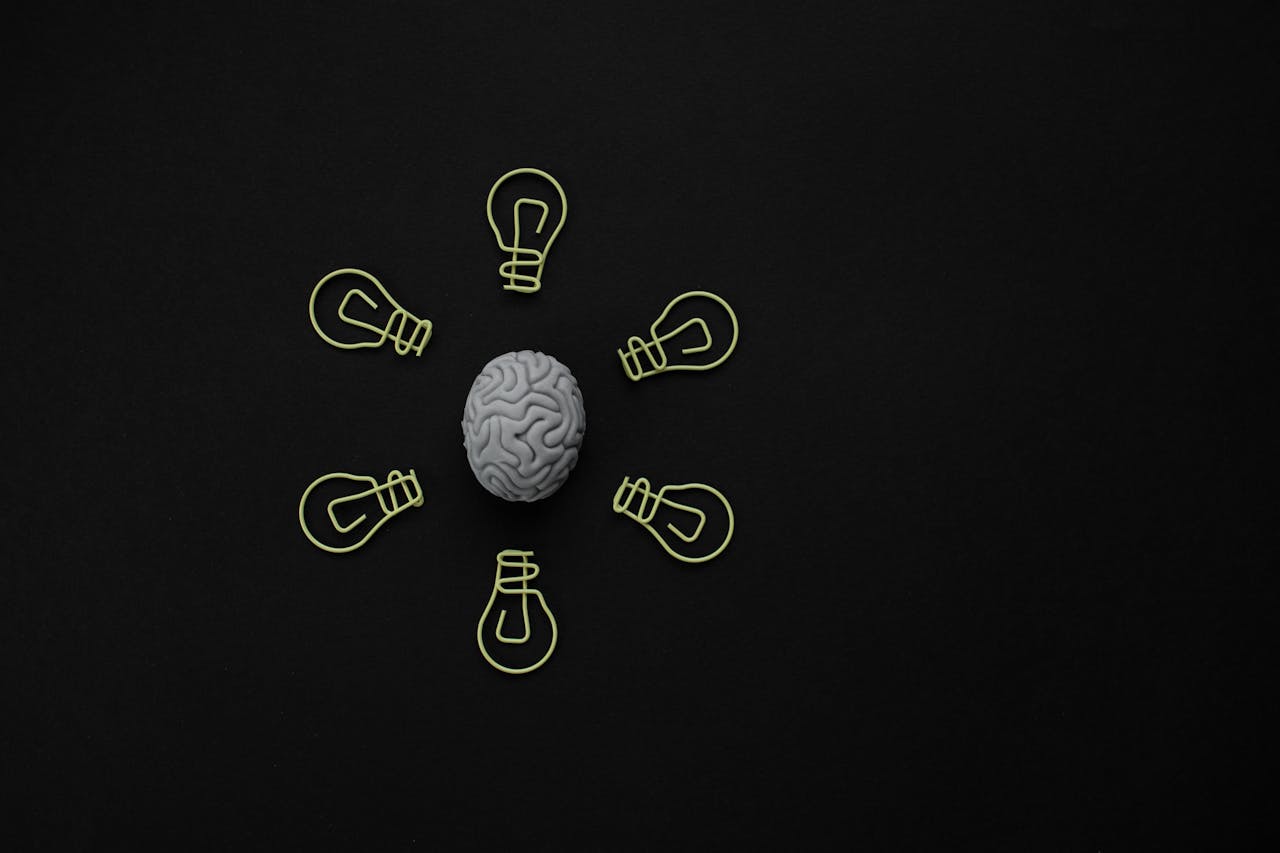Nourishing the Brain: The Vital Link Between Diet and Brain-Fuel Depletion

Nourishing the Brain: The Vital Link Between Diet and Brain-Fuel Depletion
Key Takeaways:
- Brain & Body Connection: Just as we care for our bodies, nourishing the brain is crucial for mental health.
- Brain-Fuel Depletion (BFD): Poor diet can lead to BFD, impacting mood, cognition, and mental health.
- Essential Nutrients: Complex carbs, omega-3s, antioxidants, amino acids, vitamins, and minerals are vital for brain function.
- BFD Model: Understanding brain nutrition can prevent or mitigate mental health issues.
- Practical Tips: Prioritize whole foods, omega-3s, colorful fruits and veggies, gut health, and hydration.
- Empowerment Through Nutrition: Mindful eating supports mental well-being, highlighting the direct link between diet and mood.
Nourishing the brain is just as important as looking after our bodies. In a world that often feels like it’s moving at lightning speed, our mental health can sometimes take a back seat. But what if I told you that something as simple as what we eat could be the key to establishing a happier, healthier brain? The concept of brain-fuel depletion (BFD) offers a compelling insight into how our dietary choices directly impact our mental well-being.
BFD is essentially a state where the brain lacks the necessary nutrients [Brain-Fuels] to perform optimally. Like a car running low on gas, our brains can sputter and stall without the right fuel. This can manifest in various mental health challenges, from anxiety and depression to cognitive decline. The connection between diet and mental health isn’t just about avoiding the “bad” stuff; it’s about actively nourishing our brains with what they need to thrive.
The Brain’s Preferred Fuel: A Closer Look
Our brains are energy-intensive organs, consuming about 20% of our daily caloric intake. Glucose is its primary fuel, derived from the carbohydrates we eat. However, not all carbs are created equal. Complex carbohydrates, found in whole grains, fruits, and vegetables, release glucose steadily, keeping brain function stable and supporting mood regulation.
Beyond glucose, our brains crave a variety of nutrients to support its complex functions:
– Omega-3 fatty acids, found in fatty fish, flaxseeds, and walnuts, are essential for maintaining the structure of brain cells and facilitating communication between them.
– Antioxidants in berries, leafy greens, and nuts protect the brain from oxidative stress, which can lead to cognitive decline.
– Amino acids, the building blocks of proteins, influence neurotransmitter production, affecting our mood and responses to stress.
– Vitamins and minerals, such as B vitamins, vitamin D, magnesium, and zinc, play crucial roles in energy production and the synthesis of neurotransmitters like serotonin and dopamine.
Linking Diet to Mental Health Through the BFD Model
The BFD model posits that when the brain is deprived of these essential nutrients, mental health issues can ensue. For instance, omega-3 fatty acid deficiency has been linked to mood disorders. Similarly, inadequate intake of antioxidants can accelerate brain aging, affecting memory and cognitive function. By understanding the nutritional needs of our brain, we can tailor our diet to prevent or mitigate the effects of BFD, enhancing our overall mental health and nourishing the brain.
Practical Tips for Nourishing The Brain
1. Prioritise Whole Foods: Opt for a diet rich in whole, unprocessed foods. These foods are more likely to provide the complex carbohydrates, proteins, fats, vitamins, and minerals your brain needs.
2. incorporate Omega-3s: Include sources of omega-3 fatty acids in your diet, such as salmon, chia seeds, or supplements if necessary.
3. Eat the Rainbow: Consuming a variety of fruits and vegetables ensures a wide range of antioxidants and phytonutrients, offering protection against oxidative stress.
4. Mind Your Gut: A healthy gut microbiome supports brain health through the gut-brain axis. Fermented foods like yoghurt, kefir, and kombucha can boost your intake of probiotics.
5. Stay Hydrated: Water is essential for every bodily function, including brain function. Dehydration can lead to cognitive decline and mood issues.
The journey to better mental health through nourishing the brain is not about perfection. It’s about making mindful choices that support your brain’s nutritional needs, thereby reducing the risk of BFD. By understanding the direct link between what we eat and how we feel, we empower ourselves to make changes that can significantly impact our mental well-being. Remember, nourishing your brain is one of the most valuable investments you can make in your overall health.
FAQs:
- Why does brain nutrition matter?
- Brain nutrition is vital for optimal mental health, as the brain requires specific nutrients for proper function, mood regulation, and cognitive abilities.
- How does diet affect mental well-being?
- Poor dietary choices can lead to Brain-Fuel Depletion (BFD), causing issues like anxiety, depression, and cognitive decline due to a lack of essential nutrients.
- What are some simple tips for nourishing the brain?
- Prioritize whole foods rich in nutrients like complex carbohydrates, omega-3 fatty acids, antioxidants, and vitamins. Include sources of omega-3s, colorful fruits and vegetables, support gut health, and stay hydrated for optimal brain function and mental health.
If you are feeling stressed, anxious or depressed there is help available. Visit https://checkpointorg.com/global/ for more information about support services near you.
Read more about Brain-Fuel Depletion, watch the documentary, get free chapters, or purchase the book.

